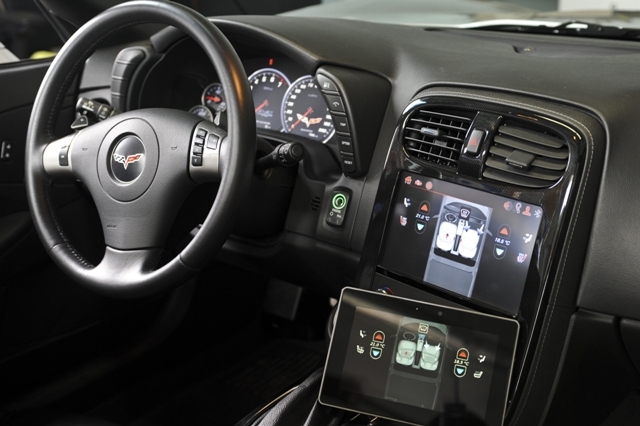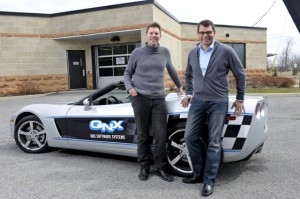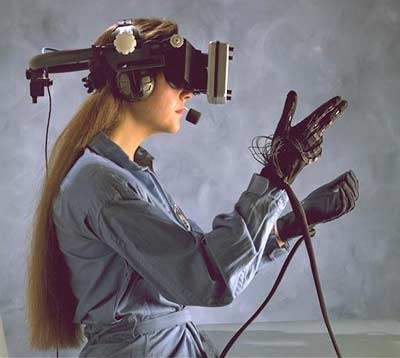
QNX: Steering Ottawa’s Course as a High-tech Leader
What does updating your facebook profile, flipping a light switch and visiting your doctor all have in common? You might not know it, but behind their operating systems are the ingenious minds of QNX, a local high-tech leader whose engineers have been working for thirty years in the region to find ways to make life just a little bit easier. Next time you are on the internet, you can thank QNX because the software foundation of the world’s highest capacity routers to handle data, voice and video traffic from Internet users was created by its engineers, right here in Ottawa’s backyard. Or perhaps when you pass a wind turbine or a hydroelectric plant, think of QNX. It made the technology used to control their power generation systems. And if you are heading to the doctor, you can definitely thank QNX for the reliability of certain diagnostic devices including cardiac monitors and bone density analyzers.
The company showcases Ottawa’s innovative talent on the international high-tech scene, solidifying a repu-tation for safety, reliability and performance. “We serve any industry that needs absolute reliability all the time – there are no comprises,” said Derek Kuhn, vice president of sales and marketing. “Over the years, we have been extremely successful in networking. We were supplying the operating infrastructure to Cisco which powers their largest routers and the backbone of what the Internet is today. Our company is really ‘software plus.’” In fact, the company’s ‘software plus’ is now used in the world’s key markets including automotive, medical, industrial and networking. QNX’s global client list reads like a business who’s who — Cisco, General Electric Lockheed Martin and Siemens — who rely on QNX technology for network routers, medical instruments, defence systems and vehicle telematics units.
In the automotive sector for example, the company’s technology is used to

create 3D navigation systems, handsfree systems and other digital instruments. You can check them out in a variety of vehicle models from Honda to Land Rover, BMW, Audi and Toyota. Last year, QNX showcased a digitally ‘pimped-out’ Chevrolet corvette (pictured above) equipped with a head unit that communicates with smart phones and a digital instrument cluster that can reconfigure itself instantly. With a dynamic reconfigurability, the car’s dashboard can replace the tachometer (that device that shows your RPMs) with a navigation application or weather widget adjacent to the speedometer and when the car is put into reverse the tachometer is replaced with a back-up camera. Additionally, the QNX car application platform in the corvette includes a powerful multimedia framework, a best-in-class acoustic processing library, Adobe Flash-based HMI technology as well as connects modules and shares resources in the vehicle without any code changes. It even connects to the cloud to provide access to a wealth of internet services. It’s a techno junkie’s dream come true.
“Our company’s culture is always reinventing itself and that makes it exciting because every day is a challenge with a diversity of projects, whether we’re working on technology for cars that will be on the market in two or three years or power grid distribution,” said Sebastien Marineau-Mes, vice president of engineering. “It’s a very fast moving industry and if you lose that edge of constantly reinventing yourself, you go out of business. We are still a young company and are innovating as quickly as we were 30 years ago.”
Maintaining a competitive edge has proven to be easy for the company, in particular thanks to international recognition. Ironically, the challenge is within the Ottawa borders, once Nortel-defined and primarily seen as the public service Mecca.
“In the various industries that we service like the UK, China, Italy and Japan, we are really well known but in Ottawa, it’s not always the case,” said Kuhn. “We’re trying to bridge that gap with a branding campaign with newspaper and bus ads in the city. There’s a lot of talent and engineers in Ottawa and we need to attract them to QNX because we need highly intelligent people.”
On the other hand, the company sells Ottawa to potential employees coming from other municipalities and even other countries.
“We have had people here from around the world who stay and see if Ottawa will fit with their family,” explained Kuhn. “Most really like the city and the quality of life. Someone coming from Silicon Valley who paid $1 million for a townhouse sees the affordability here and it’s attractive.”
Marineau-Mes added that QNX’s location in Canada’s capital has been advantageous because of the loyalty among employees who tend to stay working at companies for long periods of time.
“In Silicon Valley people are always chasing new jobs and asking what’s the next scheme to make me rich? They don’t spend the time to understand the technology and solve problems. The business we’re in requires a long time to develop the technology and mature. We have to build knowledge over time to be inventing.”
Recently, QNX went head-to-head against Apple’s iPad with Research in Motion’s (RIM) BlackBerry Playbook tablet. For Marineau-Mes, the competition was motivating and developed a strong partnership with RIM as they collaborated to develop the device. “We’ve been working with RIM on the tablet since beginning of 2010,” he said. “We took the platform that we had in our automotive platform and created a new generation of this for the tablet Our technology powers the playbook – the video player, the multitasking, high performance quality home
screen and other applications.”
As the future, Kuhn said QNX will continue to grow, aiming to be the dominant platform in software development.
“Now that QNX is in a mass market consumer electronics device, we will get a lot of halo effect from the marketing and activities that RIM will put forward and we hope that propels that to new and unknown places and bolsters our position in other markets,” he said. “We want to make technology simple for people where they don’t have to think about it as it makes their daily lives more efficient.”









